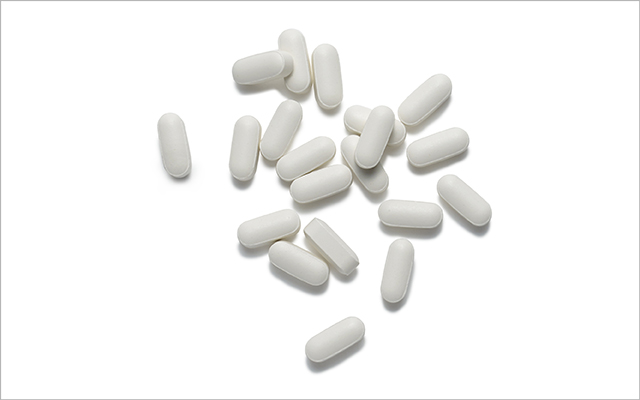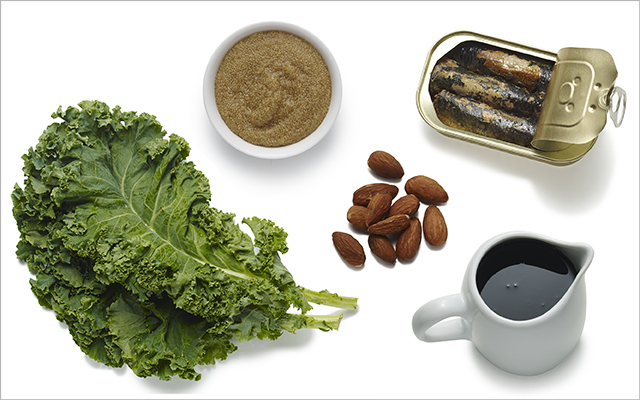Some research has concluded that calcium supplements don’t help — and may even be harmful. But certain studies may be flawed if calcium was taken without companion nutrients such as vitamins D or K2, says Gregory Plotnikoff, MD. And if participants were vitamin-D deficient, calcium absorption would have been reduced.
Our experts offer the following advice, noting that it’s wise to consult with a trusted practitioner.
1. Think Holistically
Naturopath Deborah Wiancek, ND, suggests consuming five to 12 servings of calcium-rich vegetables, seafood, nuts, and grains each day, in addition to 1,000 mg supplementation of calcium citrate or calcium glycinate, both of which are easily absorbed. (Note: The body can’t absorb more than 500 mg at a time, so take half in the morning and half in the evening.)
2. Think Preventively
Because postmenopausal women don’t produce enough estrogen to support bone health, supplementation is key. Be proactive: Wiancek suggests that women supplement with calcium starting at age 20.
3. Think Synergistically
Mark Hyman, MD, recommends taking 1,000 to 2,000 IUs of vitamin D3 daily — not the synthetic (and commonly prescribed) D2, which is less bioavailable. If testing reveals a vitamin-D deficiency (less than 50 ng/dL), you’ll need more. He also advises taking 180 to 200 mcg of vitamin K2 and 100 to 200 mg of magnesium twice daily.
4. Think Genetically
“Once you know your individual genetic blueprint, you can put together a food and dietary supplementation plan that optimizes the nutrients you need most,” says Amanda Archibald, RDN, who recommends gene-sequencing products, such as Genoma, smartDNA, and NutritionGenome. “All of these companies require clinicians to interpret the results. Otherwise, you are left wondering what to do with what you’ve learned.”
This originally appeared as “Supplement Wisely” in “Got Calcium?” in the October 2018 print issue of Experience Life.




This Post Has 0 Comments